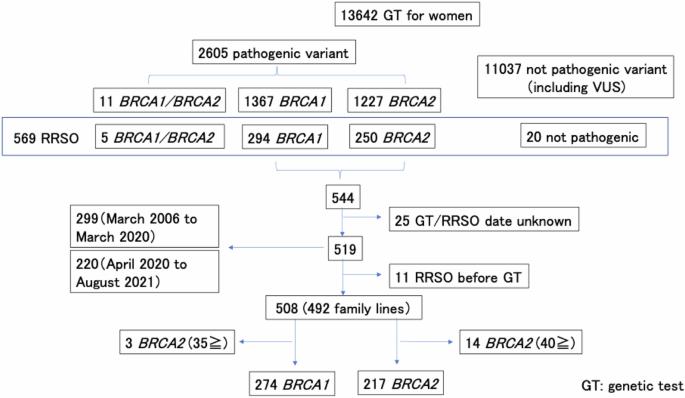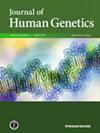The impact of public insurance on RRSO for HBOC in Japan: a nationwide data study
IF 2.5
3区 生物学
Q2 GENETICS & HEREDITY
引用次数: 0
Abstract
In Japan, risk management based on genetic disposition, such as risk-reducing surgery for hereditary breast and ovarian cancer (HBOC), is covered by public insurance only for some cancer patients. However, non-cancer clients are forced to pay a high co-payment. In this study, we examined the impact of risk-reducing salpingo-oophorectomy (RRSO), before and after the April 2020 public insurance coverage, using nationwide data from the Japanese Organization of Hereditary Breast and Ovarian Cancer. The period from March 2006 to March 2020 was defined as before insurance coverage (Pre), and the period from April 2020 to August 2021 was defined as after insurance coverage (Post). In addition, the period from April 2018 to March 2020 was designated as special (short-Pre) to coincide with the post-insurance coverage period. Of the 383 breast cancer patients who underwent genetic testing at Short-Pre, 42 (11.0%) underwent RRSO during that period. Of the 623 breast cancer patients who underwent genetic testing at Post, 142 (22.8%) underwent RRSO during that period. Significantly, this comparison shows an increase in RRSO rates in Post. Separating BRCA1 and BRCA2 also significantly increased RRSO in Post. This nationwide survey suggests that if RRSO is covered by insurance in Japan, the implementation rate will increase. As the number of cases increases in the future, the impact of insurance coverage will become clearer. If the insurance coverage for RRSO in Japan is determined to be useful, this information can be used to expand coverage for those who have not yet developed the disease.

公共保险对日本HBOC的RRSO的影响:一项全国性的数据研究。
在日本,基于遗传倾向的风险管理,如遗传性乳腺癌和卵巢癌(HBOC)的降低风险手术,仅为部分癌症患者提供公共保险。然而,非癌症患者被迫支付高额的自付费用。在这项研究中,我们使用日本遗传性乳腺癌和卵巢癌组织的全国数据,研究了降低风险的输卵管卵巢切除术(RRSO)在2020年4月公共保险覆盖前后的影响。2006年3月至2020年3月为参保前(Pre), 2020年4月至2021年8月为参保后(Post)。此外,2018年4月至2020年3月期间被指定为特殊(短pre),以配合保险后覆盖期。在接受Short-Pre基因检测的383名乳腺癌患者中,42名(11.0%)在此期间接受了RRSO。在623名接受基因检测的乳腺癌患者中,142名(22.8%)在此期间接受了RRSO。值得注意的是,这一比较显示了Post的RRSO比率的增加。分离BRCA1和BRCA2也显著增加了Post的RRSO。这项全国范围的调查表明,如果RRSO在日本被纳入保险,实施率将会提高。随着未来病例数量的增加,保险覆盖范围的影响将变得更加清晰。如果确定日本的RRSO保险范围是有用的,则可以利用这些信息扩大尚未发病的人的保险范围。
本文章由计算机程序翻译,如有差异,请以英文原文为准。
求助全文
约1分钟内获得全文
求助全文
来源期刊

Journal of Human Genetics
生物-遗传学
CiteScore
7.20
自引率
0.00%
发文量
101
审稿时长
4-8 weeks
期刊介绍:
The Journal of Human Genetics is an international journal publishing articles on human genetics, including medical genetics and human genome analysis. It covers all aspects of human genetics, including molecular genetics, clinical genetics, behavioral genetics, immunogenetics, pharmacogenomics, population genetics, functional genomics, epigenetics, genetic counseling and gene therapy.
Articles on the following areas are especially welcome: genetic factors of monogenic and complex disorders, genome-wide association studies, genetic epidemiology, cancer genetics, personal genomics, genotype-phenotype relationships and genome diversity.
 求助内容:
求助内容: 应助结果提醒方式:
应助结果提醒方式:


